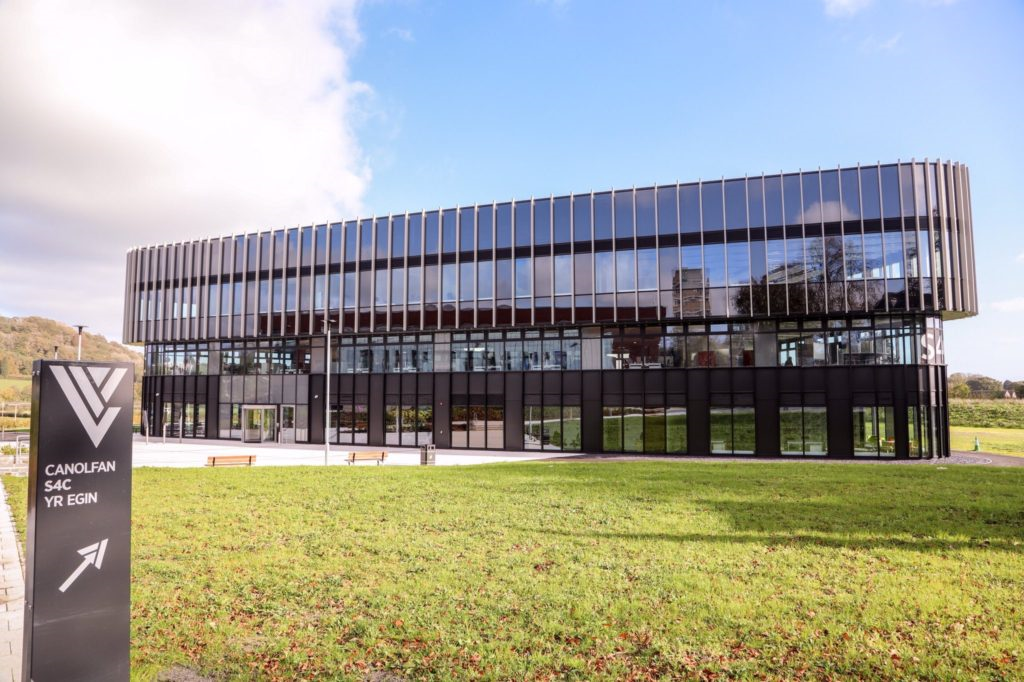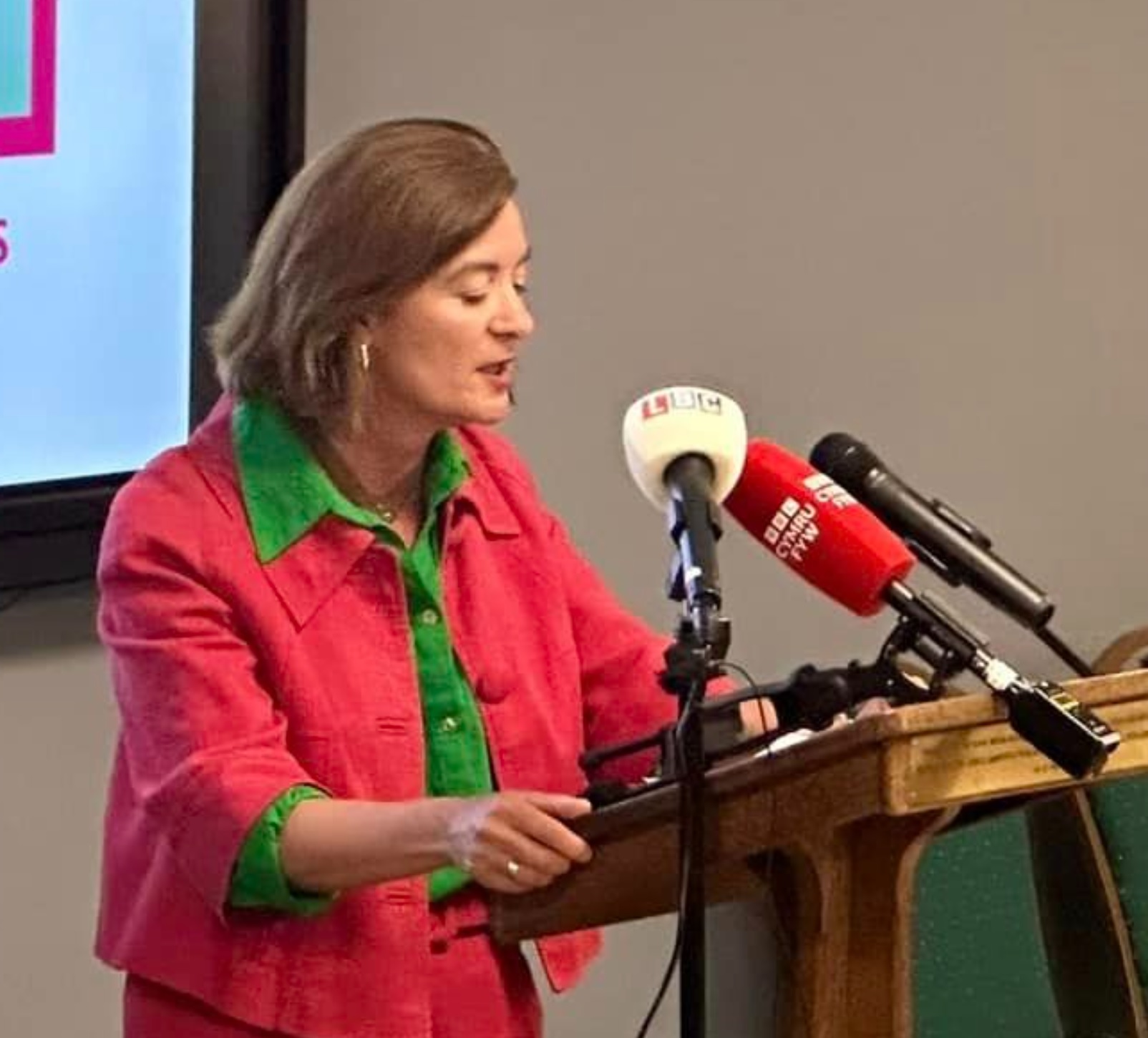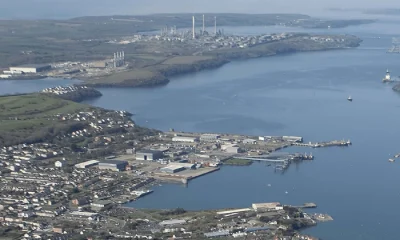Business
Shocking report reveals toxic infighting at S4C

THE FORMER Chief Executive of Welsh language broadcaster S4C created an atmosphere of fear at the channel, bullied staff and behaved “like a dictator”.
Those are the findings of an explosive report prepared for S4C by Capital Law, the Cardiff-based legal team hired to investigate misconduct allegations. S4C has around 120 employees; 92 spoke to Capital Law during its investigation.
A CULTURE OF FEAR
The report outlines several recurring complaints about Sian Doyle, who was sacked as S4C’s Chief Executive last week. Participants reported that Sian Doyle’s leadership style was: “dictatorial, creating a culture of fear”.
The report also records incidents when the former CEO spoke in a foul-mouthed and derogatory way about on-screen and backroom staff, belittled those who raised questions, and belittled staff in meetings.
Her “confrontational” behaviour reduced some to tears, caused others to suffer adversely with their mental health, and contributed towards staff leaving S4C.
One employee reported suffering “a major health event” at a management away day meeting in Llangrannog.
The employee described an animated conversation involving the Chief Executive and other senior staff members about the level of change required at S4C.
The conversation spoke about replacing many staff who were described as: “not worth worrying about” and that the Chief Executive suggested a lot of the staff at S4C did not have the skills or knowledge to justify being in their jobs. Sian Doyle reportedly suggested losing: “at least 50 of them”.
Conversely, several participants recognised that change is needed within S4C and that the general strategic direction Sian Doyle was working towards was positive. Investigators also heard from staff who spoke positively about her and described her conduct towards them as “supportive”.

STAFF IN THE CROSSFIRE
Making recommendations about S4C’s future broadcasting and commissioning strategy was far beyond the report’s remit. However, it is clear from the issues in the report that there is considerable tension within the organisation over its direction.
The report’s content permits the inference that different parts of S4C management were engaged in guerilla warfare against each other, and staff were caught in the crossfire between the rival camps.
That inference is strongly supported by a statement by the S4C Authority that said, “Participants recognised that change is needed at S4C and that the senior management team were intent on delivering an ambitious vision for the channel’s future.
“It appears, however, that the way some shared this with staff and the approach to managing change across the organisation was insensitive. “This often led to conflict and insecurity rather than creativity and a positive, inclusive transformation. It is clear that many S4C staff have been unhappy at work and that our organisation did not seem to have appropriate working practices to deal openly and appropriately with staff concerns.”
CHANNEL SAYS SORRY
The S4C Authority issued a statement: “The report paints a picture of a very difficult working environment for many at S4C. Participants described an unsettling workplace, with some individual members of the senior management team behaving inappropriately and with an approach that directly impacted the well-being of staff.
“As members of the S4C Authority, we would like to say sorry to those who have had to tolerate unacceptable behaviours in the workplace and for the upset that this has caused. We would like to thank you for your openness and honesty in sharing your experiences, enabling the failings highlighted in today’s report to be identified.”
The statement continued: “The S4C Authority is committed to ensuring that S4C is a place where our colleagues are happy and safe – a place where they feel able to perform at their best and thrive. We recognise that significant work is required to implement new working methods that will allow S4C to build a positive future with a supported and creative workforce.
“To do that, we need to restore confidence and trust amongst our staff, who have a crucial role in the organisation’s future success. Integral to that success is leadership focussed on collaboration and communication. As an Authority, we decided this would require new leadership at S4C, and we will shortly make further announcements about that process.”
SENEDD SUMMONS FOR S4C
The Senedd’s Culture Committee has called members of the S4C Board to give evidence on Thursday, December 14.
Delyth Jewell MS, Chair of the Senedd’s Culture, Communications, Welsh Language, Sport and International Relations Committee, said:
“The continued allegations in the media related to S4C are deeply worrying.
“With rumours and speculation circulating, the Committee is keen for these questions to be answered publicly.
“We are inviting the Chair and a member of S4C’s Board to give evidence next week to bring clarity for the people of Wales.
“To restore public trust in the broadcaster, it is essential that they are open and transparent in this process.
“To this end, we welcome the report’s publication and will consider its contents before speaking to S4C next week.
“We know how important the success of S4C is for the Welsh language and Wales as a country and we will be doing all we can to get answers from the channel’s leadership over the coming weeks.”
Business
Tax deadline for self-employed and landlords as digital system goes live in April

Quarterly online reporting to become mandatory for higher earners under HMRC shake-up
MORE than 860,000 sole traders and landlords across the UK are being urged to prepare now for major changes to the way they report tax, with new digital rules coming into force in just two months.
From April 6, thousands of self-employed workers and property landlords earning over £50,000 a year will be required to keep digital records and submit quarterly income updates to HM Revenue & Customs under the Government’s Making Tax Digital scheme.
The changes form part of a wider overhaul designed to modernise the tax system and reduce errors.
Instead of submitting figures once a year, those affected will use approved software to record income and expenses throughout the year and send short quarterly summaries to HMRC. Officials stress these are not extra tax returns, but updates intended to spread the workload and avoid the usual January rush.
Free and paid software options are available, with the system automatically generating the figures needed for submission.
At the end of the tax year, users will still file a Self Assessment return, but most of the information will already be stored digitally.
Craig Ogilvie, HMRC’s Director of Making Tax Digital, said the move should make tax reporting simpler.
He said: “With two months to go until MTD for Income Tax launches, now is the time to act. The system is straightforward and helps reduce errors. Thousands have already tested it successfully.
“Spreading your tax admin throughout the year means avoiding that last-minute scramble to complete a tax return every January.”
More than 12,000 quarterly updates have already been submitted during a voluntary trial.
Phased rollout
The new rules will be introduced gradually:
• From April 2026 – those earning £50,000 or more
• From April 2027 – those earning £30,000 or more
• From April 2028 – those earning £20,000 or more
To ease the transition, HMRC says it will not issue penalty points for late quarterly submissions during the first 12 months.
After that, a points system will apply, with a £200 fine only triggered once four late submissions are reached.
Anyone unable to use digital tools for genuine reasons can apply for an exemption.
Tax agents and accountants are advising clients to prepare early to avoid last-minute problems.
Further guidance, webinars and sign-up details are available via GOV.UK.
Business
Bid to convert office space into chocolate factory, salon and laundrette

A CALL for the retrospective conversion of office space previously connected to a Pembrokeshire car hire business to a chocolate factory, a beauty salon and a laundrette has been submitted to county planners
In an application to Pembrokeshire County Council, Mr M Williams, through agent Preseli Planning Ltd, sought retrospective permission for the subdivision of an office on land off Scotchwell Cottage, Cartlett, Haverfordwest into three units forming a chocolate manufacturing, a beauty salon, and a launderette, along with associated works.
A supporting statement said planning history at the site saw a 2018 application for the refurbishment of an existing office building and a change of use from oil depot offices to a hire car office and car/van storage yard, approved back in 2019.
For the chocolate manufacturing by ‘Pembrokeshire Chocolate company,’ as part of the latest scheme it said: “The operation comprises of manufacturing of handmade bespoke flavoured chocolate bars. Historically there was an element of counter sales but this has now ceased. The business sales comprise of online orders and the delivery of produce to local stockist. There are no counter sales from the premises.”
It said the beauty salon “offers treatments, nail services and hairdressing,” operating “on an appointment only basis, with the hairdresser element also offering a mobile service”. It said the third unit of the building functions as a commercial laundrette and ironing services known as ‘West Coast Laundry,’ which “predominantly provides services to holiday cottages, hotels and care homes”.
The statement added: “Beyond the unchanged access the site has parking provision for at least 12 vehicles and a turning area. The building now forms three units which employ two persons per unit. The 12 parking spaces, therefore, provide sufficient provision for staff.
“In terms of visiting members of the public the beauty salon operates on an appointment only basis and based on its small scale can only accommodate two customers at any one time. Therefore, ample parking provision exists to visitors.
“With regard to the chocolate manufacturing and commercial laundrette service these enterprises do not attract visitors but do attract the dropping off laundry and delivery of associated inputs. Drop off and collections associated with the laundry services tend to fall in line with holiday accommodation changeover days, for example Tuesday drop off and collections on the Thursday.
“With regard to the chocolate manufacturing ingredients are delivered by couriers and movements associated with this is also estimated at 10 vehicular movements per week.”
The application will be considered by county planners at a later date.
Business
First Minister criticised after ‘Netflix’ comment on struggling high streets

Government announces 15% support package but campaigners say costs still crushing hospitality
PUBS, cafés and restaurants across Wales will receive extra business rates relief — but ministers are facing criticism after comments suggesting people staying home watching Netflix are partly to blame for struggling high streets.
The Welsh Government has announced a 15% business rates discount for around 4,400 hospitality businesses in 2026-27, backed by up to £8 million in funding.
Announcing the package, Welsh Government Finance Secretary Mark Drakeford said: “Pubs, restaurants, cafés, bars, and live music venues are at the heart of communities across Wales. We know they are facing real pressures, from rising costs to changing consumer habits.
“This additional support will help around 4,400 businesses as they adapt to these challenges.”
The announcement came hours after Eluned Morgan suggested in Senedd discussions that changing lifestyles — including more time spent at home on streaming services — were contributing to falling footfall in town centres.
The remarks prompted political backlash.
Leader of the Welsh Liberal Democrats, Jane Dodds, said: “People are not willingly choosing Netflix over the high street. They are being forced indoors because prices keep rising and wages are not.
“Blaming people for staying at home is an insult to business owners who are working longer hours just to survive.”
Industry groups say the problem runs deeper than consumer behaviour.
The Campaign for Real Ale (CAMRA) welcomed the discount but warned it would not prevent closures.
Chris Charters, CAMRA Wales director, said: “15% off for a year is only the start. It won’t fix the unfair business rates system our pubs are being crushed by.
“Welsh publicans need a permanent solution, or doors will continue to close.”
Across Pembrokeshire, traders have repeatedly told The Herald that rising energy bills, wage pressures and rates — rather than a lack of willingness to go out — are keeping customers away.
Several town centres have seen growing numbers of empty units over the past year, with independent shops and hospitality venues reporting reduced footfall outside the main tourist season.
While ministers say the relief balances support with tight public finances, business groups are calling for wider and longer-term reform.
Further debate on rates changes is expected later this year.

-

 Crime1 day ago
Crime1 day agoSex offender jailed after living off grid in Pembrokeshire and refusing to register
-

 News2 days ago
News2 days agoPrincess of Wales visits historic Pembrokeshire woollen mill
-

 Crime6 days ago
Crime6 days agoPembroke man accused of child sex offences sent to Swansea Crown Court
-

 Health4 days ago
Health4 days agoDoctor struck off after sexual misconduct findings at Withybush Hospital
-

 Crime6 hours ago
Crime6 hours agoTeacher injured and teenager arrested for attempted murder at Milford Haven School
-

 Community6 days ago
Community6 days ago50s women threaten legal action over pension compensation refusal
-

 Crime6 days ago
Crime6 days agoManhunt intensifies after woman seriously injured in Carmarthen park stabbing
-

 Education5 days ago
Education5 days agoIndustry insight helps marine cadets chart career course
































